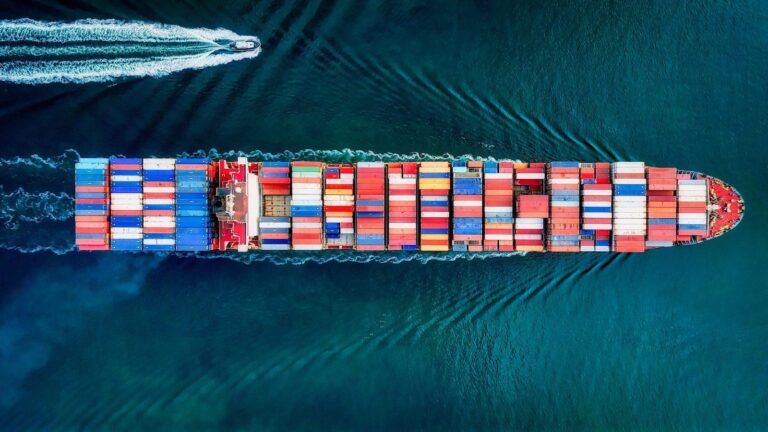Tariffs and trade policy can be quite a confusing topic, even for a senior advisor to former President Trump, who recently proclaimed on Twitter/X that “Tariffs are taxes on Foreign producers, not American.” He argues that American industrial success is due to tariffs and that protectionism will bring back jobs and prosperity.
Never mind the historical reality that the Smoot-Hawley tariffs helped bring about the Great Depression of the 1930s. But much like the next socialist utopian plan, this time it will be different.
As advocates of human liberty, open markets, and the freedom for people to interact with whom they choose, we must to be equipped to talk to friends and family about tariffs. When discussing the advantages of trade, it is important to be well-informed and to be able to keep things simple. Below are four points that will equip freedom loving Americans to discuss why free trade, not protectionism, is the patriotic and pro-American choice.
Comparative Advantage Cannot Be Ignored
First, why do we trade, and is trade a win-lose proposition? The goal of a tariff is to discourage purchasing cheaper foreign-made goods in favor of more costly domestic goods. Tariffs seek to level the playing field by increasing the prices we pay for foreign goods.
Begin by asking your tariff-loving friend why they do not make their clothes at home. They will probably answer that they don’t know how, and even if they did it would take too much time. This immediately illuminates the reality that there exists a comparative advantage to letting someone more knowledgeable make their clothes. Your friend can spend their day focused on what they do well and then trade the value they create for the jeans or t-shirt produced by someone else.
Next, inquire why we would want to pull American workers away from what they do well compared to other nations. This sacrifices our comparative advantage for something we cannot do as well as another nation. Trade permits people to focus on their talents and benefit from what others do best.
When trade deficits are inevitably brought up, simply ask how they are addressing their trade deficit with Walmart. It should take very little to deduce that there is nothing wrong with trade deficits when they occur naturally.
Trade allows us all to enrich ourselves and our neighbors by pursuing what we do well and bringing that value to the market, a win-win proposition.
Recognize the Limits of What Trade Can Accomplish
Socialists are easy to mock. They consistently sell their utopian vision, come up tragically short and never learn from their mistakes. Instead, the mistake is repeated, trapping innocent victims in endless, hopeless misery.
Advocates of human liberty must learn a lesson from the socialists by understanding and communicating the limits of what freedom can deliver. By recognizing that liberty won’t deliver utopia, the argument for liberty is strengthened. Why? When you promise perfection, the perception of a single flaw will undermine the cause.
Regarding trade, there must be free trade realism. Free trade allows humans to flourish by permitting people to pursue what they do well and cooperate with others to create real value. This raises everyone’s standard of living.
However, free trade will not bring about world peace. A generation ago it was sold to the American public that if we open trade with China, expose the Chinese people to the prosperity of the West, that they will soon adopt western liberal values. On the contrary, China adopted a policy of state-controlled markets, while still benefiting from markets, and simultaneously further eroded the civil liberties of the Chinese people.
Recognizing the limits of what free trade can accomplish strengthens the case for the good it brings about. Just because trade with China did not lead to China adopting political liberalism, it does not mean that trade with China is not in the interest of America.
More Trade Serves American Interests
The case of protectionism and tariffs is typically made in the name of national interest and patriotism. The claim goes, if you support American workers, American jobs, and love your country then you ought to support policies that favor domestic production over foreign production.
The reality is that free trade enriches our neighbors and fellow Americans. We are still working through the echoes of the pandemic and the consequences of the harmful policies implemented to deal with it. From shutting down the economy, disrupting supply chains, and printing $6 trillion dollars out of thin air, the average American family still feels the pain of higher prices at the grocery store, the gas pump, and the cost of daily living.
When trade is open and goods flow uninhibited, regular working families have access to more choices at a lower cost. There is nothing more patriotic than promoting the means for your fellow citizens to flourish.
Trade protectionism costs families more in their day-to-day living. It directs American production away from what we do best to something less efficient. Currently there are over 600,000 open manufacturing jobs in the United States. We do not have enough manpower for domestic production to meet demand. Trade is imperative to economic flourishing more than ever, especially as the American population continues to age and baby boomers leave the work force.
The duty of a patriot is to support free trade.
Trade Must Not Undermine American Citizens’ Right to Security
While comparative advantage is real and it may be more efficient to manufacture certain goods overseas, efficiency is not everything.
Free trade advocates must be realist and recognize we do not live in a vacuum. There are national security reasons to pursue realistic and reasonable protectionist policies. Semiconductor chip manufacturing, a critical component in so many goods in today’s world, is dominated by Taiwan. The threat of a Chinese invasion to mainland Taiwan is real, and it is prudent to recognize the need to build up the United States’ capacity to manufacture these critical components.
The case for free trade must be coupled with the recognition that free trade must not undermine the security of the American people or support the military of nations antagonistic to the United States.
Conclusion
The case for free trade is made more robust when it is recognized that the world is not a neat and clean economic equation out of a college textbook. If an unrealistic utopian vision is sold the case for free trade and liberty will be undermined.
An excellent resource for further reading on the economic crossroads America is currently at and the case for open markets over protectionism is a recent book, The Next American Economy, by AIER scholar Dr. Samuel Gregg.
Free trade has the support of empirical evidence, and it ought to have the support of moral arguments. When making the case against protectionism and for economic freedom, we should argue that it is a moral good that ordinary people not be denied the means to pursue lives of authentic human flourishing. Free trade is a critical piece that will allow individuals to continue to pursue the American dream of making a better life for their families.














Add comment